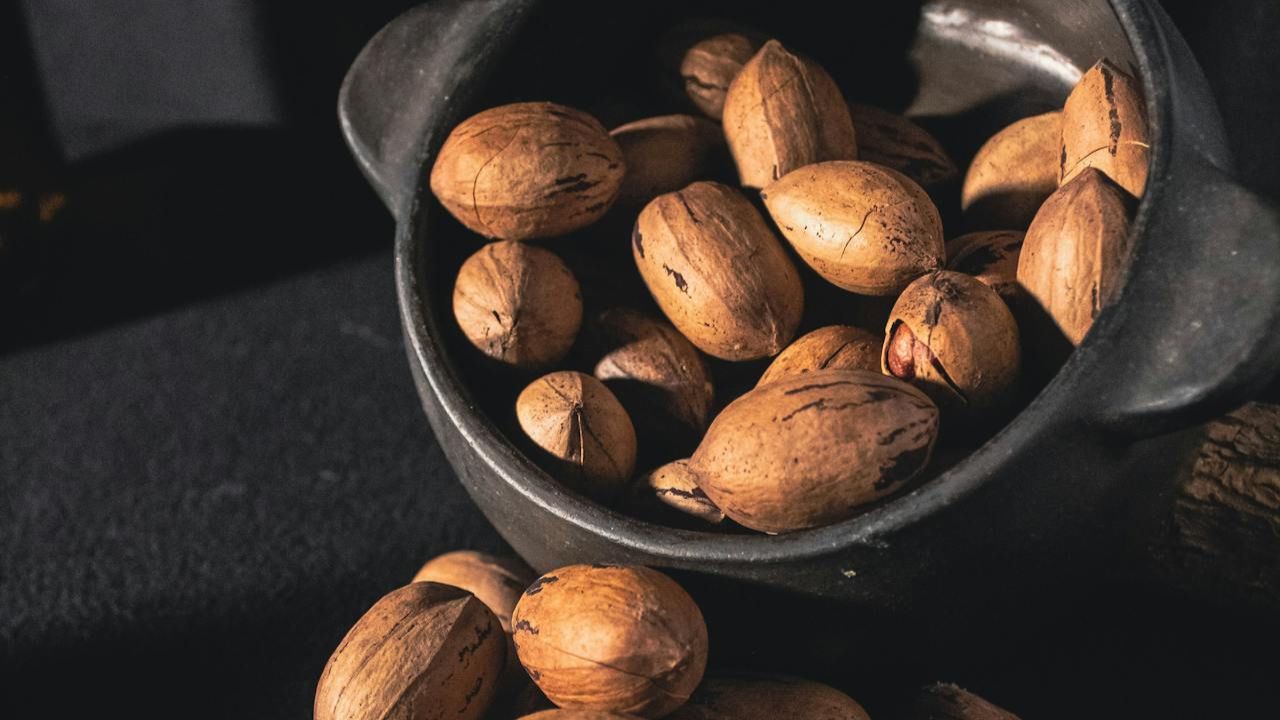When you have eaten a good pecan, what do you do with the shell? Very often we can just wipe it off without even thinking about it. And what would happen to that hard, brown shell, were it to happen to become something marvellous? It turns out that pecan shells hold a secret that can be used in many ways far beyond the pecan nut, itself. This paper explores the unexpected and environmentally-friendly realm of pecan shells and how it is being adopted into gardens, industry and even homes to enhance the environment. Get yourself prepared to view this common object in a totally fresh light!
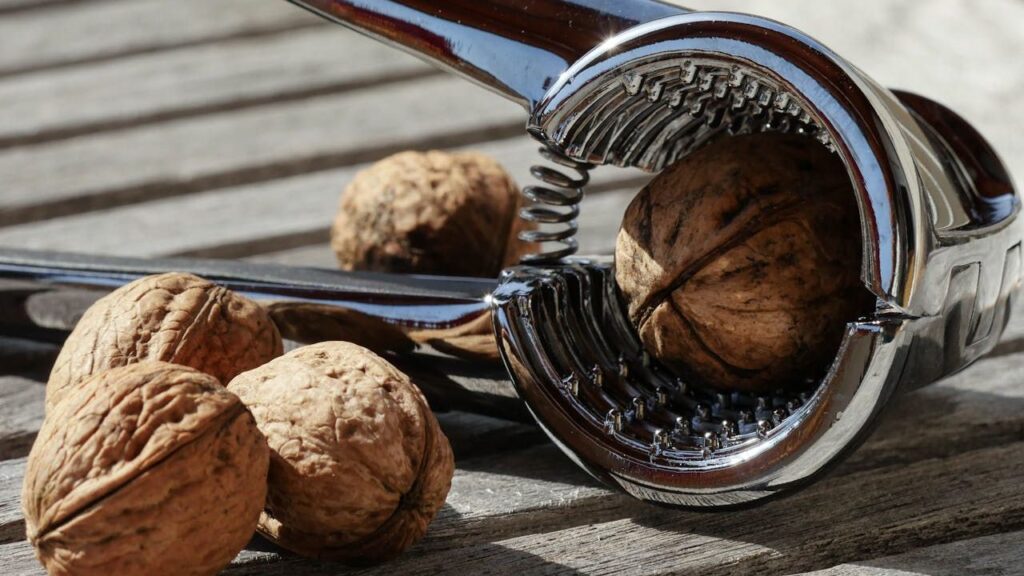
What Are Pecan Shells?
Pecan shells are the tough, protective, outer covering that enshrouds the pecan nut that we all adore to munch on. They are an inherently natural result of the pecan processing industry. These are the shells after the nuts are opened to reach the part that is consumed. Previously, they were regarded basically as trash, something that can be discarded or even burned. Today, however, we know that these shells are good material. They are very hard and durable with a very rough, textured layer that is made of a complex material formation known as lignin. This unusual nature causes them to be ideal in just about any application that we can imagine today as we merely scratch the surface in terms of what they can do.
Pecan Shells in Gardening
Probably the best and easiest way to use crushed pecan shells is to use them as mulch in your garden and along landscape beds. Pecan shell mulch comes with some terrific benefits to your plants. It plays the role of a natural barrier and also helps the soil cling to precious moisture so that you are not compelled to shuttle water every time. It also kills weeds by denying them the sunlight they require to blossom and the hours spent weeding in the once known weed patch in your flower bed will be saved. The shells take a lot of time to become broken down by the forces of nature and thus they introduce organic matter to the soil. Not only do they provide a very attractive, natural-looking protective covering of your garden beds that do not easily wash off in rains, they also render your garden bed much healthier.
Pecan Shells for Smoky Flavor
You may have used hickory or mesquite chips when you are grilling or smoking meat. Pecan shells, carioca? They have been referred to as the secret sword of pitmasters in the quest to give their food an extra burst of smoky flavour that is deep, rich, and sweet. When smoked, the shells produce a smoke that is a little sweet and softer than hickory but with a heavy flavor. They are ideal to smoke brisket, pork shoulder, ribs and even poultry. Many barbecue lovers simply sprinkle a handful of the shells in their hot coals or in their smoker box to instantly enhance their BBQ and improve an everyday meal into gourmet level.
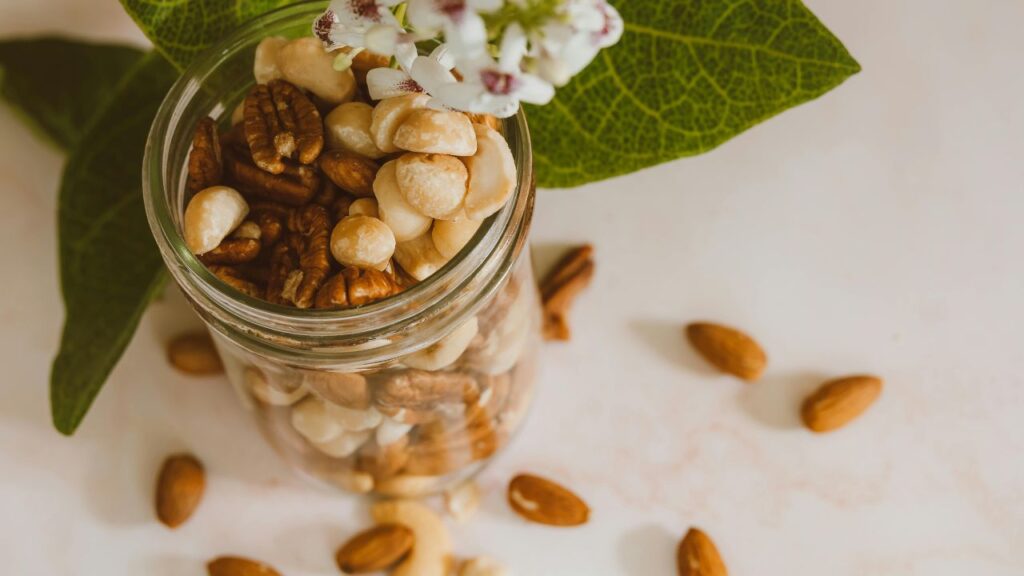
Industrial Uses of Shells
The pecan shells are so helpful due to the strength and abrasive nature of the shell as far as industrial production is concerned. It also can be used as an aggressive but biodegradable blasting media. Rather than subject the daintier surfaces like airplane engines, auto parts, and even historic monuments to harsher chemicals or synthetic polishing compound, companies use finely ground pecan shells to do the job. The substance is firm to get rid of the grime and the corrosion but soft so that it does not ruin the metal underneath. This offers a green cleaning product that industries are turning to to lessen the impact they have on the environment whilst retaining high standards.
Pecan Shells as Filler
You may also be surprised to know that pecan shells are mostly used as a filler in other manufacturing methods. Since it is easy to find, recyclable and in many cases, it can be used as a cheaper alternative to plastics and other synthetic compounds, it can be used in creating products that are stronger, lighter and more sustainable through a combination with plastics and other synthetic materials. This is found in the manufacture of composites like as building material, filler in artificial logs and even some kinds of flooring. Crushed shells can make a product cheaper to produce than a purely synthetic alternative, but the process also produces a product that is less reliant on entirely synthetic materials to the benefit of both the business and the environment.
Pecan Shells for Health
Although you should never eat them, pecan shells are being investigated as the source of health benefits in other ways. Researchers are isolating substances Science extracts shell compounds such as antioxidants and tannins to use in dietary supplements and health products. Preliminary studies indicate the compounds with anti inflammatory and anti aging effects. Moreover, the natural absorbency of the shells makes them to be good to use in water filtration systems, whereby they help in filtration of impurities and heavy metals in water. This turns them into something more than mere waste into something that can possibly create wellness and cleaner surroundings to live in.
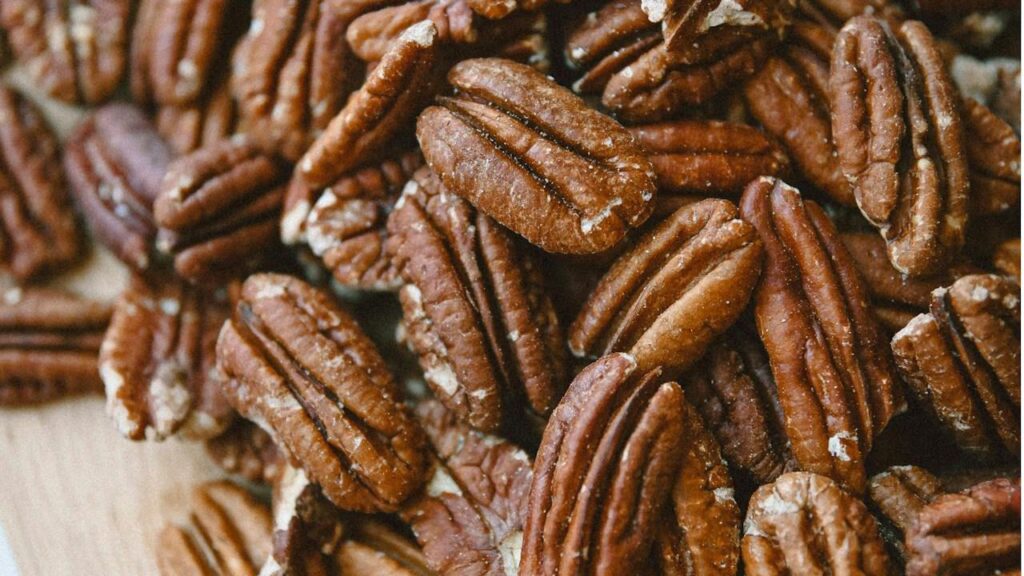
Pecan Shells and Sustainability
And the best modern use of pecan shells may be its role as a promoter of sustainability. These shells will no longer end up in a landfill where they would slowly break down to produce methane but will instead be upcycled into high value products. This builds in an end-to-end economy involving minimal wastage of resources. Pecan shells should be used as mulch, fuel or industrial raw materials, which means we will consume less virgin materials like peat moss, hardwood trees, or plastic-based ones. It is through the selection of products manufactured out of this natural product of waste that consumers and businesses can also make significant reductions in their environmental impact and aid in the transition to more sustainable practice creating less waste.
Cleaning with Pecan Shells
Pecan shell (pecan shell ground to create a natural abrasive texture) is an excellent additive to environmentally-responsible cleaning supplies. You can find it in hand soaps, scrubbing powders, and other cleaning pastes to take off relics of tough dirt without scratching. Compared to plastic microbeads which end up polluting the waterways, pecan shell granules are biodegradable and do not carry any toxicity. They offer the cleaning capabilities that we require when cleaning pots, pans and dirty hands but without damaging the environment. This makes them safe and effective possible choices in homes that want to have much greener choices without compromising cleaning performance.
Pecan Shells: Usage Comparison Table
| Feature | Pecan Shell Mulch | Traditional Wood Mulch | Rubber Mulch |
| Eco-Friendliness | Excellent ( renewable waste product) | Good (biodegradable) | Poor (made from recycled tires, doesn’t biodegrade) |
| Weed Suppression | Excellent (forms a dense barrier) | Good (can vary by chip size) | Excellent (very dense) |
| Moisture Retention | Excellent | Very Good | Poor (does not absorb water) |
| Longevity | Very Long-Lasting (breaks down slowly) | Shorter-Lasting (breaks down faster) | Extremely Long-Lasting |
| Cost | Often low-cost or free in producing regions | Varies, can be moderate | Higher upfront cost |
| Aesthetic | Natural, rustic, attractive look | Natural, traditional look | Uniform but artificial look |
| Soil Health | Adds organic matter as it decomposes | Adds organic matter as it decomposes | Adds no nutritional value to soil |
| Best For | Garden beds, landscaping paths | General garden use, flower beds | Playgrounds (for cushioning) |
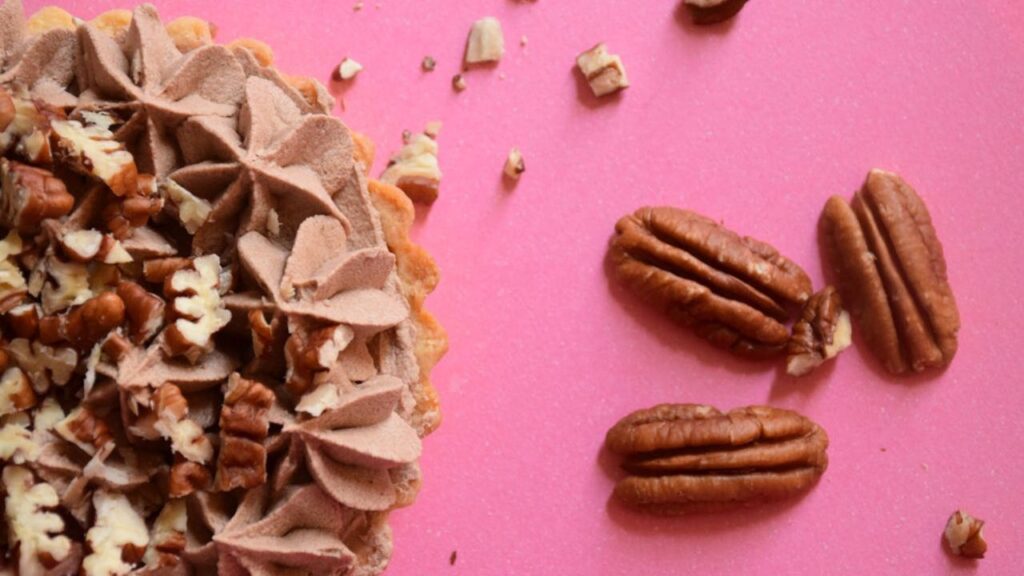
Conclusion
Pecan Shells are way more than a by-product Based on its ability to enrich our gardens and make our diet taste delicious, as well as playing a role in fueling industrial advancement and supporting the sustainability agenda, this simple natural product has certainly proved itself to be a multi-purpose resource. The next time you split an open pecan, be aware of the hidden potential inside that shell. By finding new uses of byproducts, like pecan shells, we are undertaking an important shift to an innovative and circular economy where nothing is sent to waste and materials have been re-used several times.
FAQ’s
1. Can I use pecan shells in my garden directly from the bag?
You can. Use the best top-layer mulch. It doesn’t require any special treatment. All you need to do is spread 2-3 inch layers around your plants and keep 2-3 inches away from the stem.
2. Do pecan shells attract bugs or pests?
No, they are not just quite appealing to regular unwanted pests like termites & ants. In fact, hard and sharp texture when crushed can even deter some soft body pests preventing them from crawling or slithering over them.
3. Are pecan shells safe to use for smoking food?
Absolutely! They are so natural and a great source of providing sweet, smoky flavor to meat. Just wash the shells thoroughly without any kind of chemicals and molds. Use it as you would any other smoking chip
4. Where can I buy pecan shells?
They are available at garden or farm supply stores or online sellers such as Amazon. You may even find them very cheap or free of charge in pecan-growing areas where processors undersell the trees.
5. Will pecan shells make my soil acidic?
Being slow to decompose, they produce little effect on the soil pH. It does not matter much to garden plants. You do not have to adjust it with lime.
